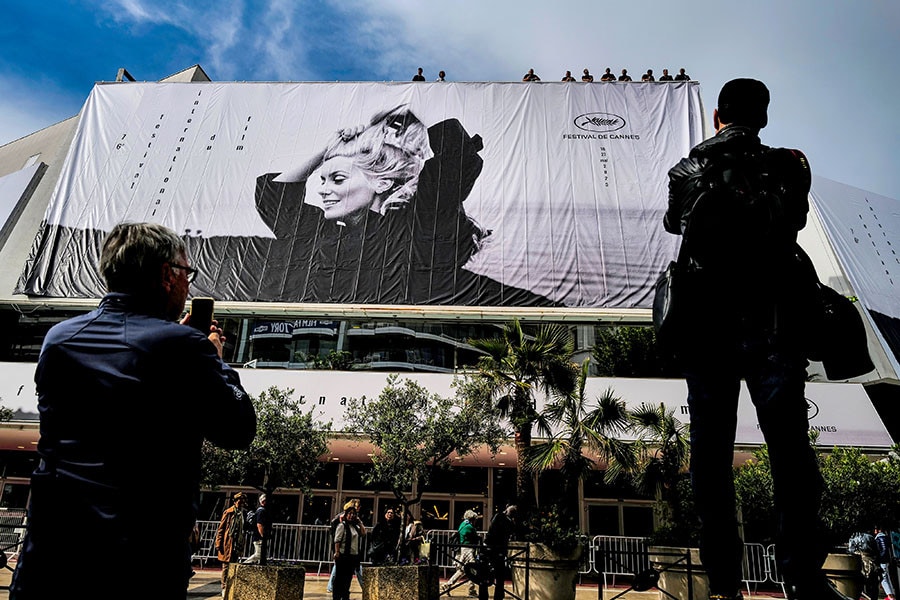
Cannes Film Festival: Painstaking steps to equality for women, minority cinema
Things have improved at Cannes since 2012, when there were zero women in the main competition, but it has been painstaking progress
 People watch as workers hang the official poster of the 76th Cannes Film Festival featuring a photograph of actress Catherine Deneuve by Jack Garofalo, on the facade of the Palais des Festivals in Cannes, southeastern France, on May 14, 2023. Image: Valery HACHE / AFP
People watch as workers hang the official poster of the 76th Cannes Film Festival featuring a photograph of actress Catherine Deneuve by Jack Garofalo, on the facade of the Palais des Festivals in Cannes, southeastern France, on May 14, 2023. Image: Valery HACHE / AFP
A record seven women directors are competing for the Palme d'Or at this year's Cannes Film Festival — a third of the total — but activists say deep-rooted obstacles remain for women and minorities. Things have improved at Cannes since 2012, when there were zero women in the main competition, but it has been painstaking progress.
Only two women have ever won the Palme d'Or — France's Julia Ducournau for "Titane" in 2021 and New Zealand's Jane Campion for "The Piano" in 1993.
"We are delighted with this number of directors in competition but it's worrying that progress is so slow," said Clementine Charlemaine of France's 50/50 Collective, which campaigns for greater female representation.
Away from the dazzle of the red carpet, the problems are worse than the festival numbers suggest.
Despite roughly half of film school students being women, only 21 percent of European movies between 2017 and 2021 had female directors, according to the European Audiovisual Observatory.







